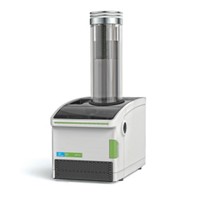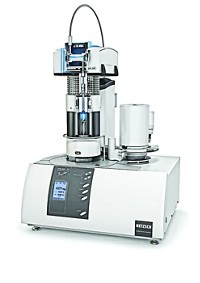Advertisement
Grab your lab coat. Let's get started
Welcome!
Welcome!
Create an account below to get 6 C&EN articles per month, receive newsletters and more - all free.
It seems this is your first time logging in online. Please enter the following information to continue.
As an ACS member you automatically get access to this site. All we need is few more details to create your reading experience.
Not you? Sign in with a different account.
Not you? Sign in with a different account.
ERROR 1
ERROR 1
ERROR 2
ERROR 2
ERROR 2
ERROR 2
ERROR 2
Password and Confirm password must match.
If you have an ACS member number, please enter it here so we can link this account to your membership. (optional)
ERROR 2
ACS values your privacy. By submitting your information, you are gaining access to C&EN and subscribing to our weekly newsletter. We use the information you provide to make your reading experience better, and we will never sell your data to third party members.
Analytical Chemistry
Inside Instrumentation
Technology and Business news for the laboratory world
by Celia H. Arnaud
May 11, 2009
| A version of this story appeared in
Volume 87, Issue 19
COMPANIES EXPAND THROUGH ACQUISITIONS
Bruker Advanced Supercon has bought Varian Medical Systems' 55% stake in the research instruments business of Germany's Accel Instruments. The business develops and makes superconducting devices, such as accelerator components and magnets, for physics and energy research. Varian will retain Accel's proton therapy oncology business. Meanwhile, Thermo Fisher Scientific will pay $120 million to buy Biolab, a provider of analytical instruments, life sciences consumables, and lab equipment in Australia and New Zealand. The business will become part of Thermo's lab products and services segment.
FIRMS DEBUT TOF/TOF MASS SPECTROMETERS
Competitors have launched two new tandem time-of-flight (TOF) mass spectrometers. The companies claim that both systems, which are aimed at the proteomics market, are the fastest matrix-assisted laser desorption/ionization (MALDI) instruments ever made. Joint-venture partners Applied Biosystems, a division of Life Technologies, and MDS Analytical Technologies released the AB Sciex TOF/TOF 5800 system, which the companies say enables researchers to identify 30% more proteins at a rate 10 times faster than other MALDI systems. Separately, Bruker Daltonics unveiled its ultrafleXtreme MALDI TOF/TOF mass spectrometer (shown). Bruker's instrument includes the company's proprietary smartbeam-II 1-kHz laser technology, which can be focused to spot sizes approaching single-cell resolution, about 10 µm.
SEMBA BIOSCIENCES COMPACT SMB UNIT
Madison, Wis.-based Semba Biosciences has introduced a benchtop simulated-moving bed (SMB) chromatography system called Octave. The automated continuous-flow instrument is designed for separating and purifying chiral compounds, proteins, antibodies, oligonucleotides, and other biomolecules in research and preparative-scale quantities of hundreds of milligrams to grams. The SMB countercurrent flow allows efficient use of stationary and mobile phases.
INDUSTRY, ACADEMIA OPEN R&D CENTERS
Waters Corp. and the University of Warwick, in England, have agreed to work jointly to set up the Waters Center for BioMedical Mass Spectrometry at the university to give scientists access to new liquid chromatography/mass spectrometry methods for the life sciences. Similarly, the Millipore Process Development Laboratory has opened at the University of Massachusetts, Lowell. Millipore has donated more than $225,000 worth of equipment and services for purification research and for training students and industry professionals. The lab is part of the interdisciplinary Massachusetts BioManufacturing Center at Lowell.
MERCURY ANALYZER TAKES OFF
PerkinElmer has introduced SMS 100, an instrument for measuring mercury in solid and liquid samples without the need for complex sample preparation. The automated system uses thermal decomposition, gold amalgamation, and cold-vapor atomic-absorption spectrometry. Researchers can use solid or liquid calibration standards, and the instrument can achieve detection limits as low as 1 ppt. PerkinElmer is targeting the environmental, utility, and food industries with this new analyzer.
ANALYZER MEASURES BOTH CO AND CO2
Picarro's new G1302 trace gas analyzer simultaneously measures CO and CO2 in real time with minimal calibration. The instrument, which uses wavelength-scanned cavity ringdown spectroscopy, is suitable for unattended monitoring of these greenhouse gases in tall-tower measurements, as well as for research and reference laboratories. The instrument measures CO with 2 parts per billion volume (ppbv) precision and CO2 with 50-ppbv precision.
ZEISS LAUNCHES TWIN-SCANNER SCOPE
Imaging company Carl Zeiss has launched the LSM 7 MP, a multiphoton laser scanning microscope for looking deep inside living tissues. By using two separate scanners, researchers can set the system's two excitation lasers to different wavelengths for simultaneously or sequentially imaging a specimen. At excitation wavelengths up to 1,100 nm, efficient fluorescence excitation can occur deep inside tissue samples without the phototoxic damage associated with high-intensity light. A range of detectors, filters, and other accessories allows users to configure the system for specific applications.
Celia H. Arnaud and Ann M. Thayer write Inside Instrumentation. Contact them via e-mail to instrumentation@acs.org.







Join the conversation
Contact the reporter
Submit a Letter to the Editor for publication
Engage with us on Twitter